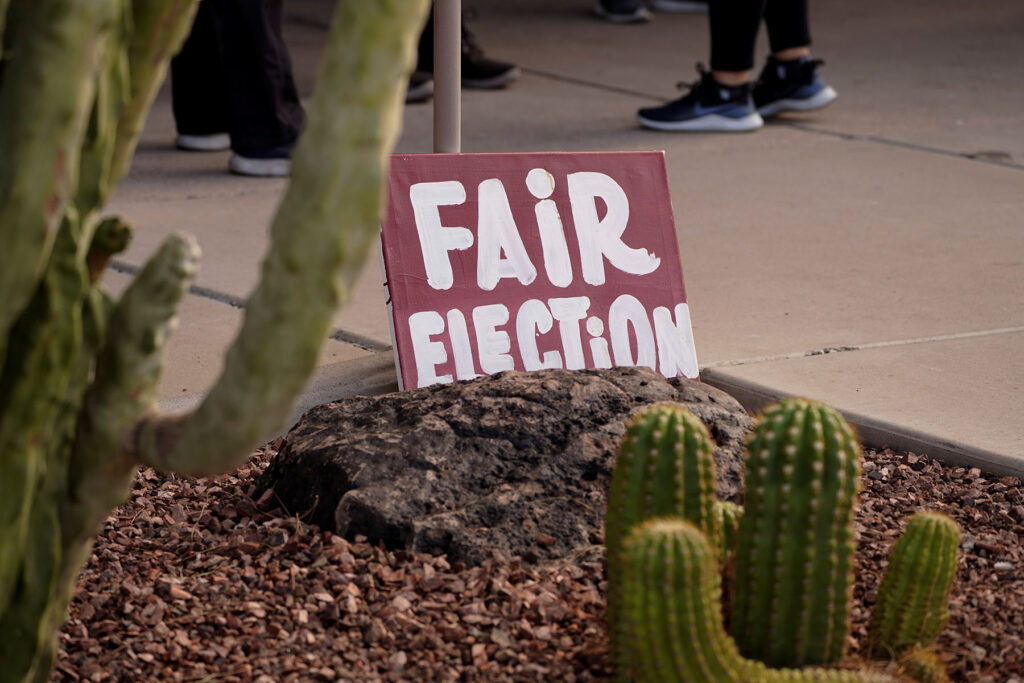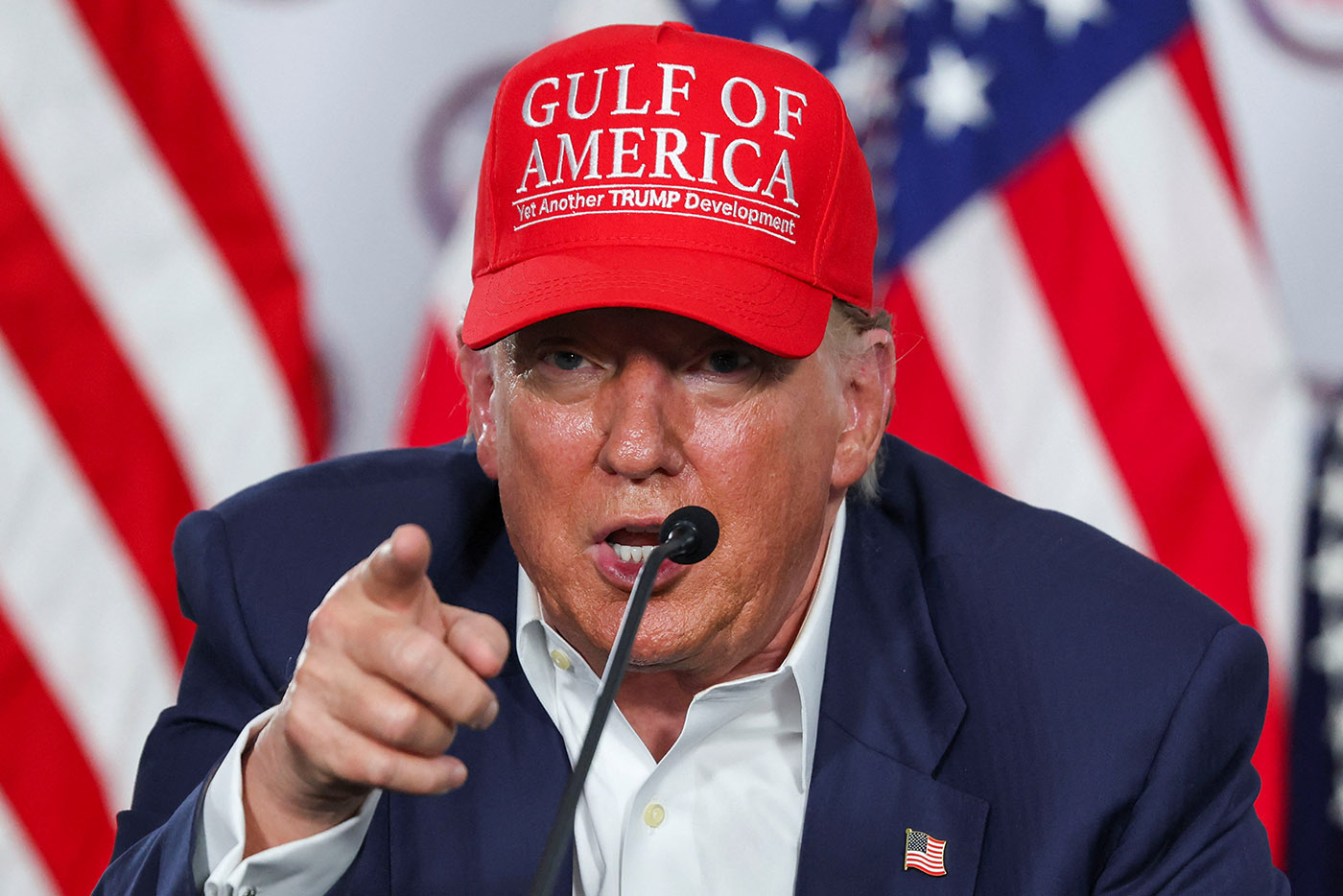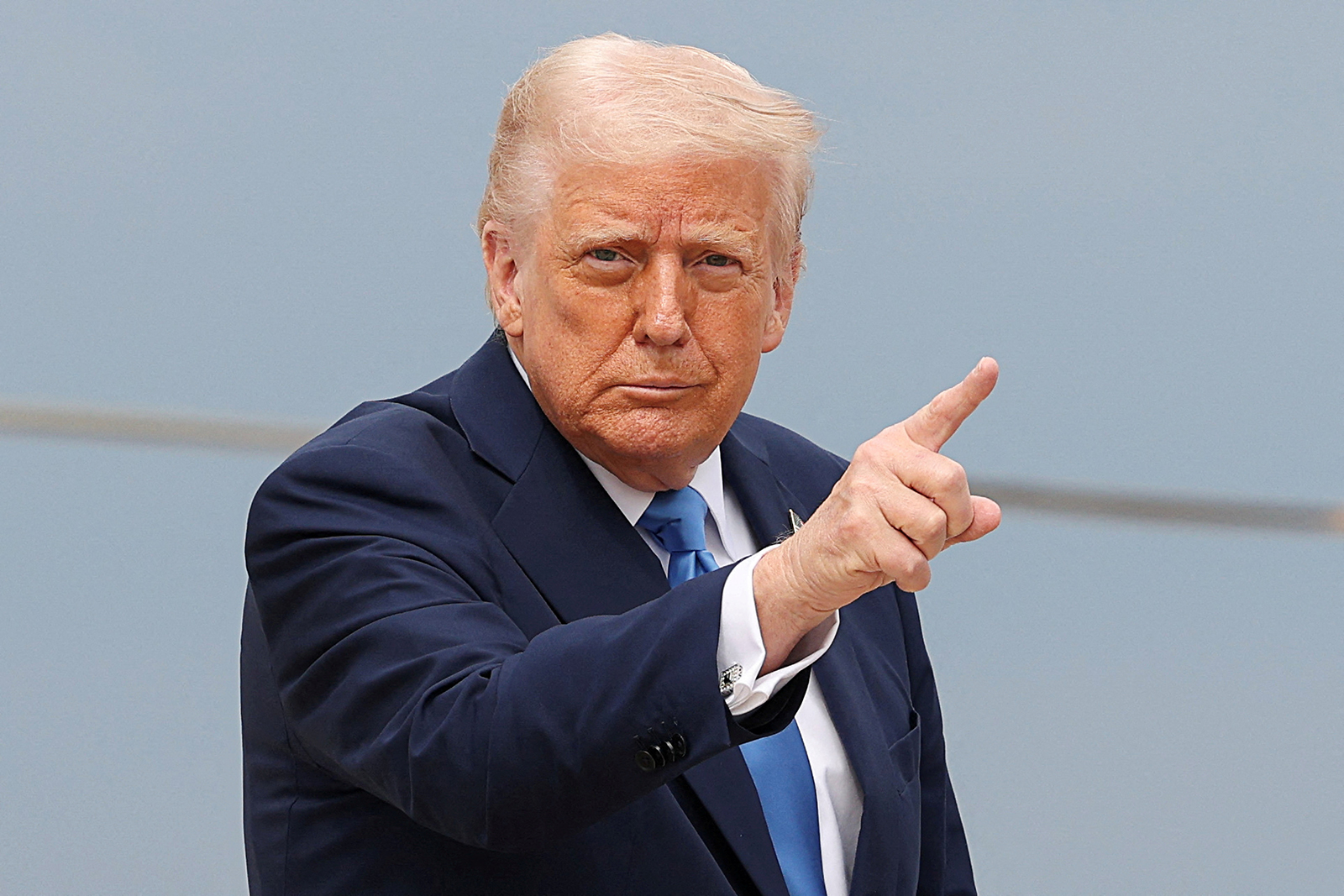Policy grassroots organization Americans for Prosperity filed a lawsuit in federal court March 17 claiming a voter-approved Arizona statute violates the First Amendment in requiring the disclosure of big-money donors to organizations involved in campaign media spending.
The lawsuit, filed in the U.S. District Court for the District of Arizona, claims Proposition 211, called the Voters’ Right to Know Act, is unconstitutional because “the First Amendment safeguards the right of individuals to donate to private advocacy organizations of their choosing without undue risk that they will be subjected to their identities being disclosed or other chilling by the government,” the lawsuit states. A similar lawsuit was filed in Arizona state court against the proposition by the Center for Arizona Policy and the Arizona Free Enterprise Club in December 2022.
Proposition 211 requires the public disclosure of information of all individuals who donate $5,000 or more to an organization that spends more than $50,000 in statewide campaigns. This campaign media spending can include advertisements or voter registration activities. In local campaigns, individual donations of at least $2,500 to organizations that spend at least $25,000 in campaign media spending triggers public disclosure.
Americans for Prosperity, (AFP), which describes itself as a “premier grassroots organization transforming country policy,” is a 501(c)(4) nonprofit, which makes it exempt from publicly disclosing its donors to the IRS. But under Proposition 211, AFP argues, “non-profit and charitable organizations of any stripe that happen to engage in ‘campaign media spending’ are all treated as PACs [Political Action Committees] without any regard for their major purpose.”
Proposition 211 was spearheaded by former Arizona Attorney General Terry Goddard, a Democrat who was defeated in 2010 and went on to lead the “Stop Dark Money” ballot initiative in 2022. “Dark money,” according to the Brennan Center for Justice, “is election-related spending where the source is secret.”
“Arizona voters should have the right to know who is spending money to influence our elections,” Goddard said in the release announcing the filing of the ballot initiative. “For too long people we don’t know have been spending money to influence our elections and pass laws we don’t like. This initiative will put a stop to that. People have a right to advocate for the candidates and the issues they care about, but the voters must also have the right to know who is influencing our elections.”
In the statute, “campaign media spending” is defined as any use of donations on public communications including those that “expressly advocates for or against the nomination, or election of a candidate;” and “promotes, supports, attacks or opposes the qualification or approval of any state or local initiative or referendum.” It also refers to any “research, design, production, polling, data analytics, mailing or social media list acquisition” that may be used to relay the communications.
The lawsuit claims that the definition of “campaign media spending” is overbroad because it “stretch[es] far beyond election-related activity by sweeping up speech traditionally characterized as issue advocacy.”
Gregg Leslie, executive director of the First Amendment Clinic at the Sandra Day O’Connor College of Law at Arizona State University, says the right to anonymous speech and to anonymously participate in the political process has long been recognized by the Supreme Court, referencing McIntyre v. Ohio Elections Commission (1995).
In McIntyre the court held that “Anonymity is a shield from the tyranny of the majority … It thus exemplifies the purpose behind the Bill of Rights and of the First Amendment in particular: to protect unpopular individuals from retaliation … at the hand of an intolerant society.”
In other words, the precedent in McIntyre protects an individual’s right to participate in political speech anonymously, Leslie said.
But those defending Proposition 211, he added, have a “tough burden to overcome” in battling against the precedent set in McIntyre.
“They’d have to argue basically that this was so directly tied to supporting a campaign on the ballot, that there’s a compelling interest in doing that, and they’ve carefully tailored it as narrowly as possible,” he said. “It’s going to be hard to demonstrate to a court that this was sufficiently narrowly tailored, but that would be their only option to try to do that … They would want to argue that it’s as narrowly tailored as they can to disclose those people who are influencing elections, but under a straight reading of McIntyre, that wouldn’t be good enough. ”
According to the statute, all funds spent on campaigns must be traced back to an “original source.” Casey Mattox, vice president for judicial and legal strategy at AFP, describes this as “misattribution,” because then the public can see an organization that may have donated to another organization for a specific cause, but the secondary organization then donated to another cause that the primary organization didn’t intend to endorse.
The goal of Proposition 211, Mattox said, according to the proposition’s supporters, “is to make sure that people know who is supporting certain campaign media spending, but this law expands that term beyond elections to reach people simply talking to people about issues. And if that’s the goal, it’s not really served by requiring disclosure that goes back so far that the people being disclosed have absolutely no idea that an ad ever run or that may not even support that particular ad.”
Any organization in Arizona “that wants to talk publicly about political issues in the state,” Mattox said, would have to disclose its donors. “You’d have people not in Arizona, totally disconnected from anything happening in Arizona … and suddenly they find their donors being disclosed,” he said.
The crux of the lawsuit’s argument is based on the 2021 Supreme Court decision in Americans for Prosperity v. Bonta, in which AFP argued that a policy of the California Attorney General’s office which required the disclosure of its donors’ names and addresses as a way to combat fraud violated the First Amendment.
Chief Justice John Roberts wrote the majority opinion for the court and referenced NAACP v. Alabama (1958), in which the court held that “compelled disclosure of affiliation with groups engaged in advocacy may constitute as effective a restraint on freedom of association as [other] forms of governmental action.” The court also referenced Buckley v. Valeo (1976), where the court established the “exacting scrutiny,” standard, where there “must be ‘a substantial relation between the disclosure requirement and a sufficiently important governmental interest.’”
In its 2021 decision, the Supreme Court sided with Americans for Prosperity 6-3, finding that the California disclosure requirement was not narrowly tailored to an important governmental interest as required by the “exacting scrutiny” standard. In the organization’s current lawsuit against Proposition 211, it cites this decision, and argues the statute “cannot withstand the ‘exacting scrutiny’ courts apply to compelled disclosure requirements.”
The Federal Election Commission, (FEC), does outline donor disclosure requirements, but only for donations made directly to a federally registered political committee. But as for Proposition 211, Mattox says, “This is going well beyond that and dealing with [501] (c)(3) and (c)(4) groups doing advocacy on an issue … [the] FEC is focused on actual elections, not organizations talking to the public about what’s happening on issues.”
Proposition 211 was introduced on Arizona’s ballot in November 2022 and voters were asked if they’d support this type of donation disclosure — 72% voted yes.
But Mattox said while this guise of “transparency” may “sound good … organizations across the political spectrum recognize the danger of something like this and what it could mean for their ability to speak up on issues that matter to their constituencies.”
Americans for Prosperity requested a permanent injunction of the statute, and a declaration that Proposition 211 violates the First Amendment.
March 17, 2023 – Americans for Prosperity Lawsuit
Tags




